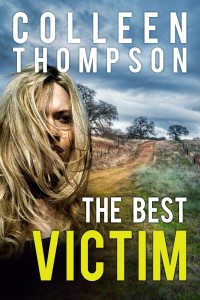Getting the Most Out of Your Critique Group
Do you ever feel as if your critique group is going nowhere? Do you dread attending meetings, or look forward to the snacks and chat more than the time spent discussing members’ writing? As a veteran of both utterly useless and wonderfully helpful critique groups, I’ve compiled some simple strategies to help members more efficiently progress toward their writing goals.
First, learn to focus on what’s really important. Shouting “I-gotcha!” every time you find a dangling participle or a misplaced comma in a critique partners’ pages is not only demoralizing, it has almost nothing to do with how real editors and agents judge the salability of work. I am certainly not saying that basic grammar and punctuation aren’t important. However, you should not waste time talking about typos, spelling or capitalization errors, and questionable punctuation. These can simply be marked for the author to examine later. Instead, consider the critical attributes of marketable fiction. Here are some questions to help guide your discussion.
- Characterization: Are the characters distinctive, believable, adequately motivated, and consistent? Are their actions reasonable, based on both their natures and the circumstances?
- Dialogue: Do conversations sound natural when read aloud? Do different characters have different, consistent styles of speaking? Does the dialogue move the scene forward?
- Scene construction: Is something clearly at stake in each scene? Does each scene move the story forward?
- Pacing: Does the scene pull you along at the appropriate speed, depending on its place in the larger structure?
- Suitability for market: Does the story fit with others in its genre? Originality is important, but basic reader expectations must be satisfied if you’re going to sell the story. For example, a genre romance must have a happy ending, a mystery cannot go unsolved, and a suspense must place the protagonists in imminent physical or psychological danger.
Another important rule to remember is to check your ego at the door. Critique group members are frequently at different stages along their writing paths. Instead of gleefully trouncing the work of a less experienced member, find something that works in his or her pages and compliment it. Then choose two or three helpful recommendations for the member to think about. Giving too many suggestions causes people to become so defensive that they tend to resist and learn nothing at all.
When you are the person receiving advice, practice saying these words. “Thanks for sharing that concern. I’ll certainly consider it.” Instead of arguing the point or defending your version, jot down what your critique partner said – even if you think it’s absolute rubbish. Later, when you’re at home, off the hot seat, and going through your notes, you may see the other person’s point more clearly.
One last attribute that distinguishes a great critique group is encouragement. When something works, say so, and explain your comments in detail. Cheer each other’s courage as members struggle toward publication, and celebrate every baby step in that direction. Function as support groups in good times and bad, and do all in your power to lift each other’s spirits.
Many writers grow so frustrated with poor critique groups that they abandon them altogether. While it takes time and effort, I can think of nothing more rewarding than finding – or building – a group of creative individuals all focused on moving toward their goals.
Copyright 2000, All Rights Reserved. Please do not reprint without permission from the Colleen Thompson.


